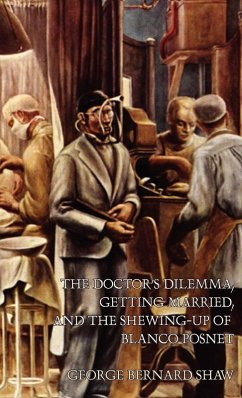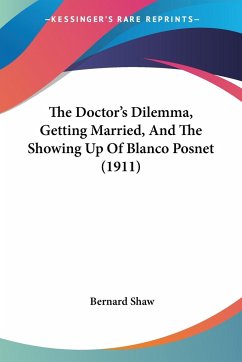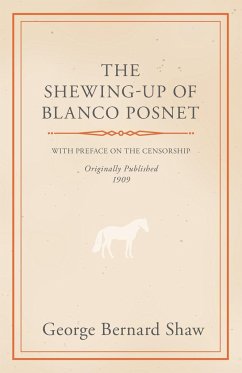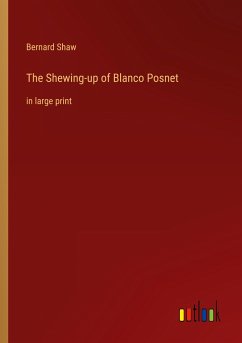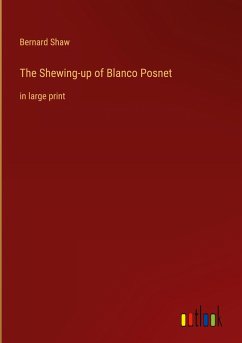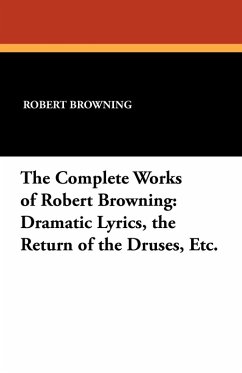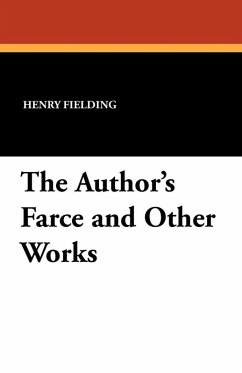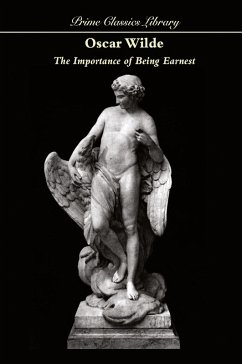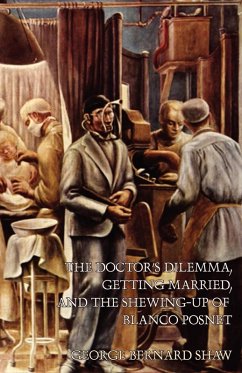
The Doctor's Dilemma, Getting Married, and The Shewing-Up of Blanco Posnet

PAYBACK Punkte
13 °P sammeln!
George Bernard Shaw (1856-1950) won the Nobel Prize in Literature in 1925 and was one of the great literary minds of his day, in addition to being one of its most entertaining personalities. In his youth he became an ardent socialist and wrote five novels, which are still very entertaining, although Shaw truly found his creative identity on the stage and lectern. While he was a great dramatist, it is possible to argue that Shaw's prefaces are better than his plays. Certainly they are masterful expositions of his ideas, and among the finest essays in English. If there is one defining virtue in ...
George Bernard Shaw (1856-1950) won the Nobel Prize in Literature in 1925 and was one of the great literary minds of his day, in addition to being one of its most entertaining personalities. In his youth he became an ardent socialist and wrote five novels, which are still very entertaining, although Shaw truly found his creative identity on the stage and lectern. While he was a great dramatist, it is possible to argue that Shaw's prefaces are better than his plays. Certainly they are masterful expositions of his ideas, and among the finest essays in English. If there is one defining virtue in Shaw, it is his ability to ask awkward questions. He was not someone who accepted the status quo; instead he spent the whole of his very long life in search of something better, as wit, critic, curmudgeon, and revolutionary. Among his greatest plays are CAESAR AND CLEOPATRA, MAN AND SUPERMAN, BACK TO METHUSELAH, SAINT JOAN, MAJORA BARBARA, PYGMALION (the basis for the musical -- and film -- MY FAIR LADY), and ANDROCLES AND THE LION. He wrote voluminously on social and political issues. His THE INTELLIGENT WOMAN'S GUIDE TO SOCIALISM (1928) was enormously popular at the time. He continued to publish until nearly the end of his life. Among his last works are SIXTEEN SELF-SKETCHES (1948), BOUYANT BILLIONS (1948) and FAR-FETCHED FABLES (1950).






